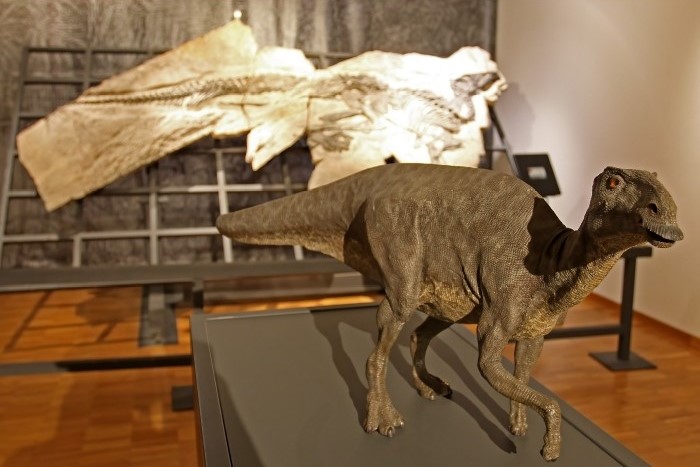 (AGENPARL) - Roma, 21 Luglio 2025
(AGENPARL) - Roma, 21 Luglio 2025(AGENPARL) – Mon 21 July 2025 INFORMAZIONE ISTITUZIONALE
E OPEN GOVERNMENT
Ufficio Stampa
21/7/2025
DAL 23 AL 26 LUGLIO ATTIVITÀ IN ITALIANO E INGLESE AL
MUSEO CIVICO DI STORIA NATURALE DI TRIESTE “DINOSAURI DEL
CARSO”: APPROFONDIMENTI E LABORATORI PER FAMIGLIE
Al Museo di Storia naturale di Trieste, mercoledì 23, giovedì 24, venerdì 25
e sabato 26 luglio dalle ore 10:30 alle ore 12:30 nelle sale dedicate alla
paleontologia Mattia Greco, studente appassionato di paleontologia e socio
dell’Associazione di volontariato culturale Cittaviva, sarà a disposizione dei
visitatori per raccontare la storia e le principali curiosità dei dinosauri del Carso
Antonio e Bruno, scoperti al sito paleontologico del Villaggio del Pescatore (Duino
Aurisina, Trieste).
I dinosauri, tra i meglio conservati al mondo, rappresentano il nuovo genere
per la scienzaTethyshadrsos insularis. Insieme agli altri fossili scoperti al Villaggio
del Pescatore aprono una finestra sul lontano mondo del Carso di 80 milioni di
anni fa.
Approfondimenti adatti a tutti, in particolare alle famiglie con bambini e ragazzi
anche stranieri.
Mattia, bilingue italiano e inglese, potrà descrivere la storia del sito e quella di
Antonio e Bruno in entrambe le lingue.
Nello stesso orario i bambini potranno preparare un calco in gesso da portare
a casa aiutati da Mattia e dal personale del museo.
Attività gratuita con pagamento del biglietto d’ingresso al Museo.
The Carso (Karst) dinosaurs: insights and workshops for families at
Trieste’s Natural History Museum
On Wednesday 23rd July, Thursday 24th July, Friday 25th July and Saturday 26th
July Mattia Greco, a student, palaeontology enthusiast and member of the
Cittaviva Cultural Volunteer Association, will be available in the museum’s
palaeontology rooms from 10.30 a.m. to 12.30 p.m. to tell visitors the story and
fun facts of Antonio and Bruno, the Carso dinosaurs, discovered at the Villaggio
del Pescatore palaeontological site (Duino Aurisina, Trieste). The dinosaurs,
among the best preserved in the world, represent an entirely new genus,
Tethyshadros insularis and, together with the other fossils discovered at the
Villaggio del Pescatore, open a window on the distant world of Carso 80 million
years ago.
The guided visits are suitable for all ages, and in particular for families with
young children and teenagers, including visitors from abroad.
Mattia, who is bilingual in Italian and English, will describe the history of the
site and that of Antonio and Bruno in both languages.
Free activity included in the Museum ticket.
COMTS

